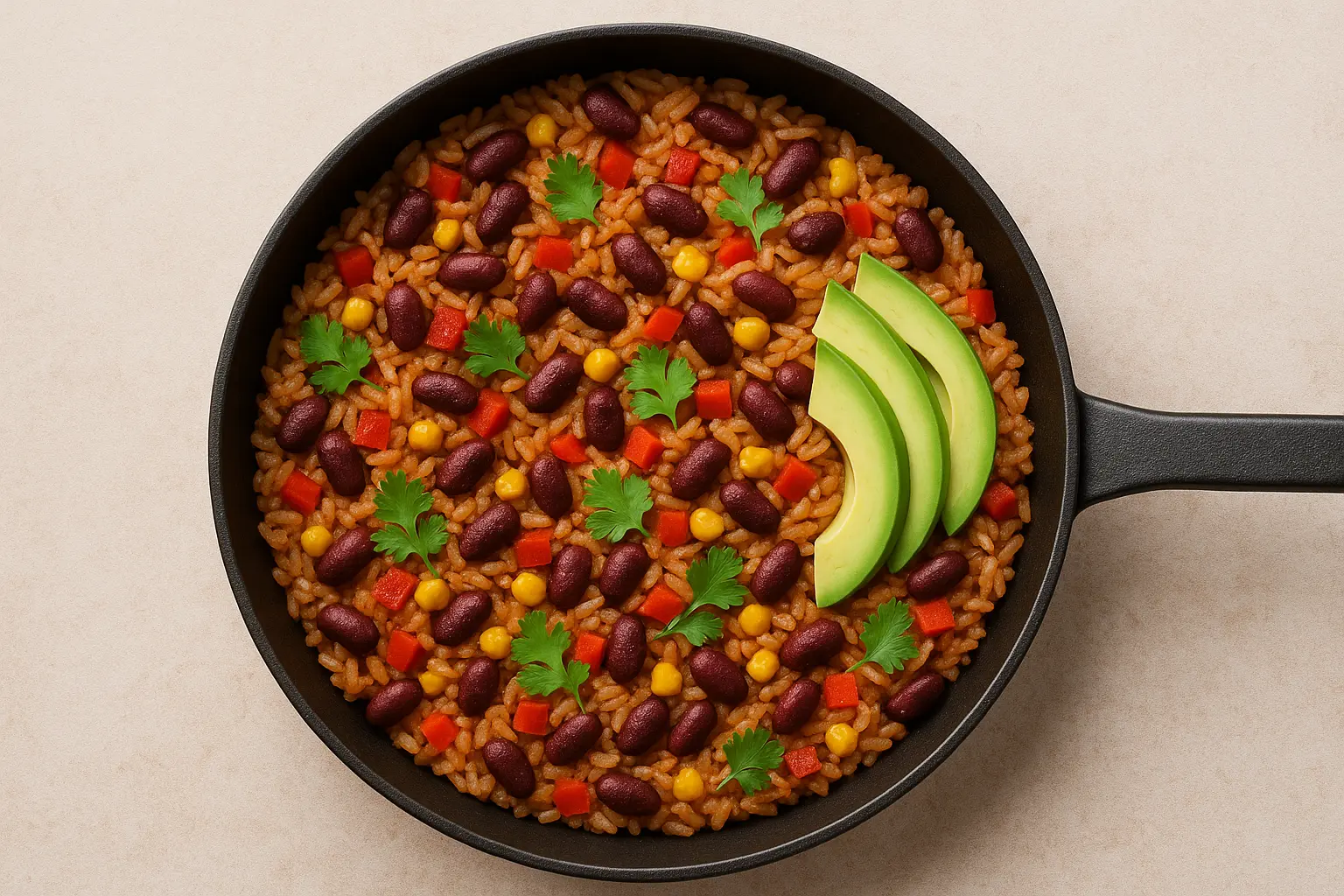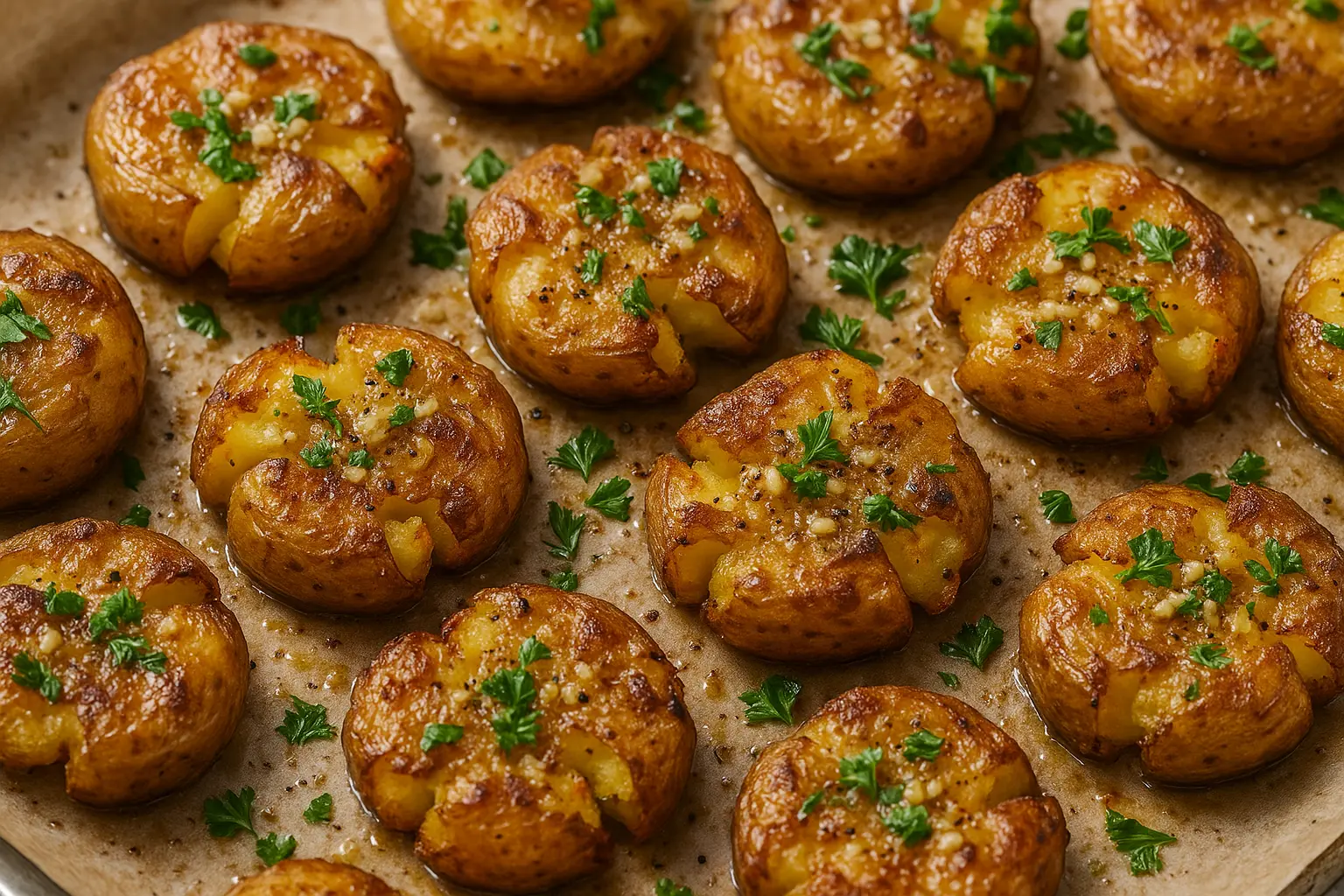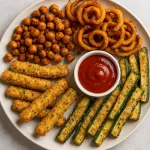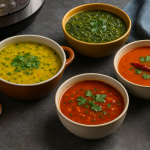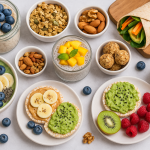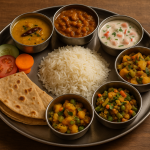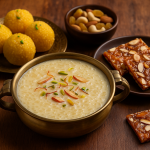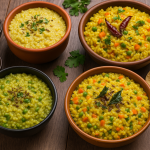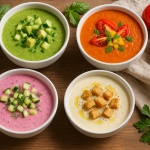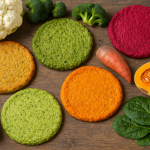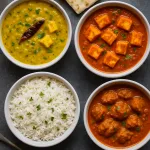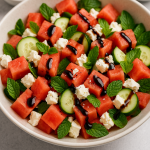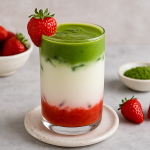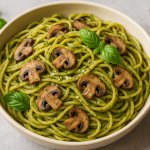Busy nights often leave us craving meals that are both comforting and effortless. Enter the world of one-pot vegan curries — wholesome dishes packed with flavor, cooked in a single pot, and ready to nourish you without the mountain of dishes that follow. From creamy coconut Thai curries to hearty lentil-based Indian dals, these recipes prove that plant-based meals can be exciting, filling, and easy to prepare.
In this comprehensive guide, we’ll dive deep into everything you need to know about vegan curries: the history, key ingredients, cooking methods, and over a dozen recipe ideas from around the globe. By the end, you’ll be equipped with inspiration and practical know-how to make weeknight dinners a breeze.
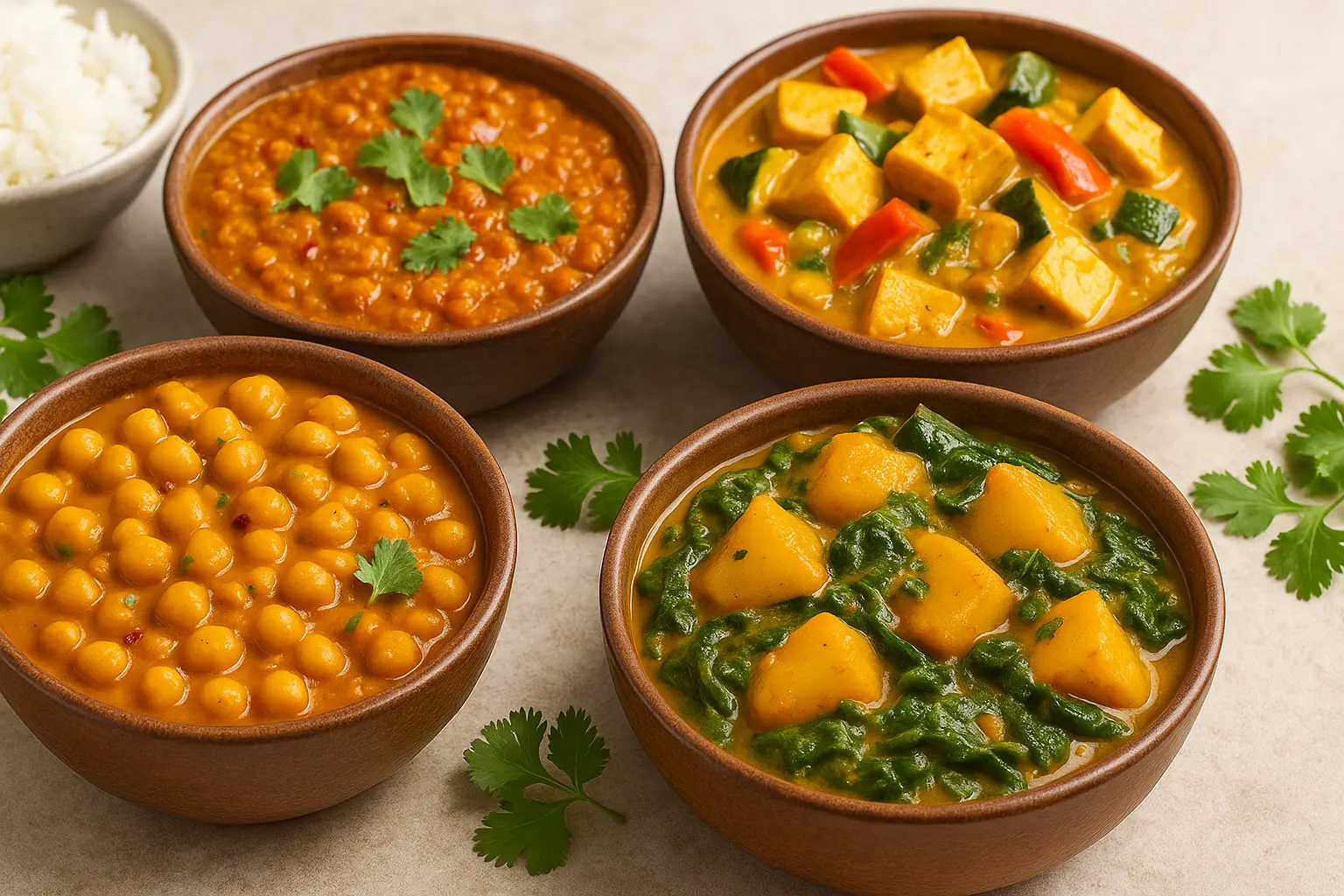
Why One-Pot Vegan Curries?
One-pot curries aren’t just a culinary trend; they represent a smarter way to cook. Let’s explore why they’ve become such a favorite among home cooks:
1. Minimal Cleanup
Cooking in one pot means fewer dishes to scrub later. No juggling pans, no cluttered stovetops — just one simmering pot doing all the work.
2. Time-Saving
Most vegan curries can be prepped in under 20 minutes and left to simmer while you unwind or prep for the next day.
3. Nutritionally Balanced
With vegetables, legumes, and spices, curries are naturally nutrient-dense. They provide fiber, protein, and antioxidants all in one bowl.
4. Global Flavors
Curries span cultures: India, Thailand, Japan, the Caribbean, and Africa all have their versions. This diversity means endless variety on your plate.
5. Budget-Friendly
Staples like beans, lentils, rice, and seasonal vegetables form the base of most curries, making them affordable yet satisfying.
Building Blocks of a Great Vegan Curry
Before diving into recipes, let’s explore the essential ingredients and techniques that elevate curries from simple stews to flavor-packed delights.
Aromatics
Onions, garlic, ginger – The holy trinity of most curries, sautéed for depth.
Green chilies – Add heat and brightness.
Spices
Whole spices (cumin seeds, mustard seeds, cardamom pods) often tempered in oil to release aroma.
Ground spices (turmeric, coriander, cumin, garam masala, curry powder) create complexity.
Thai curry pastes (red, green, yellow) bring heat and zest.
Base
Tomato-based: Tangy and hearty (common in Indian curries).
Coconut milk: Creamy, rich, slightly sweet (popular in Thai/Caribbean).
Broth/stock: Light and savory.
Proteins
Lentils: Red lentils cook quickly, while green/brown add texture.
Chickpeas & beans: Hearty and satisfying.
Tofu or tempeh: Absorb flavors beautifully.
Vegetables
From spinach to sweet potato, eggplant to zucchini, curries embrace seasonal produce. Leafy greens add freshness, root veggies add body.
Garnishes
Fresh cilantro, lime wedges, toasted nuts, or coconut flakes add the finishing touch.
Regional Inspirations for One-Pot Vegan Curries
1. Indian Curries
India is the heartland of curries. From dal (lentil curry) to aloo gobi (potato and cauliflower), the range is endless. Spices are layered carefully, creating depth in every bite.
2. Thai Curries
Thai curries are lighter and more fragrant, often built on curry pastes and coconut milk. The balance of spicy, sweet, sour, and salty defines Thai cooking.
3. Japanese Curries
Milder and slightly sweet, Japanese curries often use a roux (flour + fat + spices). Vegan versions rely on vegetable broth and spices.
4. Caribbean Curries
Influenced by Indian indentured laborers, Caribbean curries often use coconut, allspice, and Scotch bonnet peppers.
5. African Curries
Peanut-based sauces (like West African groundnut stew) or spicy berbere-flavored Ethiopian curries are hearty, bold, and unique.
Essential Equipment
Heavy-bottomed pot or Dutch oven: Ensures even cooking.
Wooden spoon: To stir without scratching.
Immersion blender (optional): For silky-smooth curries.
Step-by-Step Framework: Making a One-Pot Vegan Curry
Heat oil in a pot.
Sauté aromatics (onion, garlic, ginger).
Add spices or curry paste; toast until fragrant.
Stir in vegetables, legumes, or tofu.
Add liquid (coconut milk, broth, or water).
Simmer until everything is tender.
Adjust seasoning with salt, lime juice, or fresh herbs.
Serve with rice, naan, or flatbread.
15 One-Pot Vegan Curry Recipes to Try
Below are detailed recipe outlines to inspire your cooking. Each highlights unique flavors but stays true to the one-pot concept.
1. Creamy Coconut Chickpea Curry
Chickpeas, spinach, and coconut milk simmered with turmeric, cumin, and chili for a rich, satisfying dish.
2. Red Lentil Dal
Quick-cooking red lentils spiced with ginger, garlic, and cumin seeds. Perfect with basmati rice.
3. Thai Green Vegetable Curry
Zucchini, eggplant, and green beans in a fragrant green curry paste and coconut milk base.
4. Sweet Potato & Spinach Curry
A vibrant orange curry with sweet potatoes and fresh spinach in a tomato-coconut gravy.
5. Tofu Tikka Masala
Marinated tofu cubes in a creamy, spiced tomato sauce.
6. West African Peanut Curry
A hearty blend of peanut butter, tomatoes, and collard greens with chili heat.
7. Cauliflower & Potato Curry (Aloo Gobi)
Simple, hearty, and classic — spiced potatoes and cauliflower.
8. Japanese-Inspired Vegetable Curry
Carrots, potatoes, and peas in a mild curry sauce thickened with cornstarch.
9. Pumpkin & Red Lentil Curry
Silky pumpkin blended with red lentils for a warming autumn dish.
10. Black Bean & Corn Curry
Southwestern twist: smoky beans and corn in a tomato-based sauce.
11. Mushroom & Spinach Curry
Umami-packed mushrooms and wilted greens in a garam masala sauce.
12. Caribbean Chickpea Curry
Bold with curry powder, allspice, and Scotch bonnet peppers, mellowed with coconut milk.
13. Eggplant & Tomato Curry
Slow-simmered eggplant melts into a tangy tomato sauce with Indian spices.
14. Thai Red Curry with Bamboo Shoots
A classic red curry enriched with bamboo shoots, bell peppers, and tofu.
15. Mixed Vegetable Korma
Cashew cream base with a medley of vegetables, mildly spiced and kid-friendly.
Tips for Success
Toast your spices: Just 30 seconds in hot oil intensifies flavor.
Balance flavors: Use a touch of acidity (lime, lemon, or vinegar) to brighten richness.
Batch cook: Many curries taste even better the next day, making them perfect for meal prep.
Freeze leftovers: Lentil and bean curries freeze well for up to 3 months.
Experiment: Swap vegetables based on season — zucchini in summer, pumpkin in fall, cauliflower in winter.
Pairings and Sides
Curries shine with simple accompaniments:
Rice: Basmati, jasmine, or brown rice.
Flatbreads: Roti, naan, or pita.
Pickles & Chutneys: Add zing and contrast.
Salads: Cooling cucumber raita (vegan version with coconut yogurt).
Health Benefits of Vegan Curries
High in Fiber: Lentils, beans, and vegetables support digestion.
Rich in Antioxidants: Spices like turmeric and ginger fight inflammation.
Plant Protein: Legumes and tofu provide protein without cholesterol.
Gut-Friendly: Fermented ingredients (like miso in Japanese curries) promote gut health.
Common Questions About One-Pot Vegan Curries
Q: Can I make curries without oil?
Yes, sauté aromatics in vegetable broth instead of oil.
Q: How do I store leftovers?
Refrigerate for up to 4 days or freeze in portions.
Q: What’s the best curry for beginners?
Red lentil dal or chickpea curry — simple, forgiving, and quick.
Q: Can I make curries in an Instant Pot?
Absolutely. Use the sauté function for aromatics, then pressure cook for faster results.
Conclusion: Comfort in Every Bowl
One-pot vegan curries are more than just recipes; they’re a lifestyle choice that celebrates flavor, health, and ease. Whether you lean toward Indian dals, Thai coconut curries, or Caribbean spice blends, there’s a curry for every craving and every season.
The next time you need a quick, wholesome dinner, reach for your favorite pot and let spices, legumes, and vegetables come together in harmony. Dinner will be done, dishes will be minimal, and your taste buds will thank you.
Leave a comment
Your email address will not be published. Required fields are marked *



